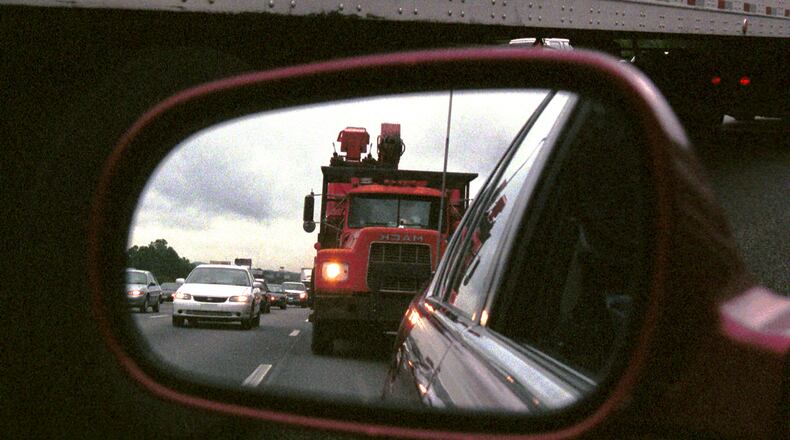Two horrendous truck crashes occurred near Savannah recently. Ten people died, five of them nursing students. What did the crashes have in common? All of the people were killed when their cars were struck by big rigs. And the trucks that mowed them over left no skid marks on the pavement. The brakes were never applied.
No one should be surprised at the high number of deaths (over 4,200 annually) involving tractor-trailer crashes in the U.S.
Because, where trucking safety rules are concerned, the United States is significantly behind. Just consider:
- Ours is the only leading country without a requirement that speed governors (automatic controls) be set at a reasonable top speed for big rigs. Yet, three-fourths of fatal crashes involving tractor-trailers happen at highway speeds.
- The No. 1 equipment reason that heavy trucks are taken out of service by enforcement is "issues with brakes".
- We still allow "proof" that truck drivers are not violating the rules about how long they can work (80-plus hours a week) with an "honor system," in which they keep paper logbooks themselves.
- Truckers are paid by the mile, meaning it's clear their incentives are not aligned with safe practices.
In numerous countries, speed governing and electronic logging of drive time and work time have been required for decades. In addition, many countries limit drive time to 45 hours per week and prohibit paying truck drivers by the mile or by the job. We believe the hardworking truck drivers of America should be paid for every hour they work, including overtime. Incredibly, truck drivers have been exempt from overtime treatment dating back to a Depression-era labor bill.
In short, there currently is no disincentive keeping freight companies from working truck drivers to death, figuratively and literally (as hundreds die on the job every year). And when truckers are tired or inattentive, terrible things happen.
Georgia is already among the five states with the most fatalities from crashes involving big rigs. And with the expansion of the Savannah Port, about which we are all excited from a business standpoint, truck traffic is about to increase here dramatically. Our representatives in Congress and Gov. Nathan Deal must lead in protecting all drivers – motorists and truckers — before it gets even worse on Georgia highways. This includes measures like electronic logging and speed governor settings, both of which are getting close to becoming requirements in the industry.
But special interests are pushing for changes that will actually increase the dangers where 18-wheelers are concerned, the opposite of what’s needed. For example, trying to keep the very low liability insurance requirement for big trucks, which allows just about anyone to enter the business. Insurance rates rarely force reckless companies out of the business, as originally intended. (The insurance requirement was set in the 1980s at the time of deregulation and was never adjusted, even for inflation.)
Another bad idea: Allowing double trailers to add an additional 10 feet of length.
The horrendous truck-caused crashes recently near Savannah have drawn attention to this problem in an awful way. But please be aware: these are not isolated events. About twelve people lose their lives, on average, every day in the U.S. and over 100,000 are injured annually, breaking thousands more hearts, and costing the public billions of dollars a year.
While we applaud Gov. Deal’s efforts to increase enforcement, he is limited in what he can do. The necessary change that very likely would have avoided these terrifying crashes is a requirement for technology that can sense slow-moving, or stopped, traffic ahead and safely stop, or significantly slow down, the vehicle without driver action. This technology is amazing and quite cost-effective, especially at the volumes that would be involved if required for all big rigs. Based on the U.S. Transportation Department’s own estimates, the likely retail cost would be about $500 a truck. It’s a shame and an outrage to think that this technology, costing so little, would likely have saved all of those precious lives.
Many in trucking want these technologies, too. They know we are all prone to errors. But when big rigs are involved in crashes, the odds for serious injuries and deaths are high. Why shouldn’t truckers have every single technology available to help keep them out of such potentially catastrophic situations? We should do everything we can to make truckers safe.
Georgia senators Johnny Isakson and David Perdue have been actively supporting our safety agenda in Washington, in addition to Congressmen Tom Price, Buddy Carter, John Lewis, Hank Johnson, Sanford Bishop and David Scott, as well as Atlanta Mayor Kasim Reed. Please thank them and encourage the rest of the delegation in Washington to join the team, pushing for truck safety initiatives to become law as soon as possible for everyone’s sakes.
About the Author
Keep Reading
The Latest
Featured


